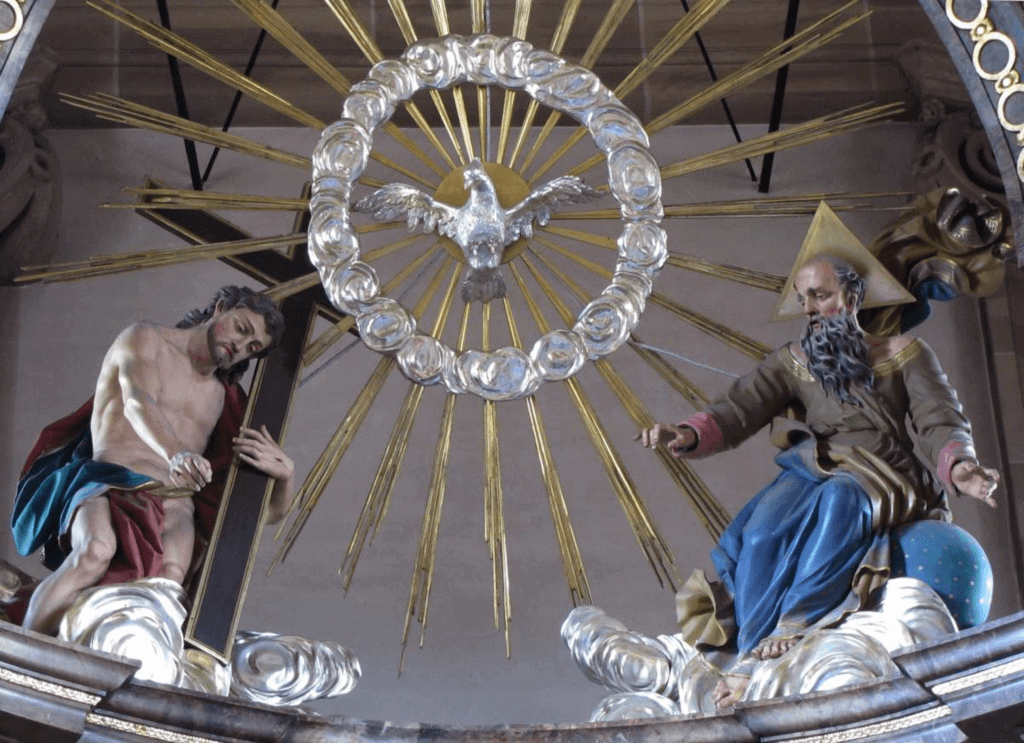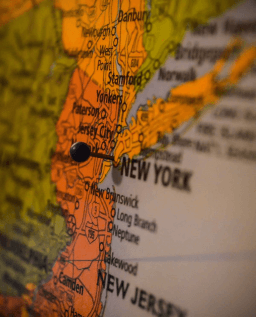Easter
Easter is observed next on Sunday, April 5th, 2026 (60 days from today).

Easter is arguably the most important day in all of Christianity. It celebrates the resurrection of Jesus Christ, a central belief among Christians worldwide and the heart of their faith. After the Romans crucified Jesus around AD 30, it is believed that this event happened three days. Therefore, Christians hope that they will also experience resurrection in heaven.
Easter is a celebration on the first Sunday after the first full moon after March 21st. If the Full Moon is on a Sunday, Easter will be on the following Sunday. Christians observe Easter in personal and universal ways. Let's take a closer look.
History of Easter
Easter is a holiday with 2000 year old in order to commemorate the resurrection of Jesus Christ as well as mark the arrival of spring. For many people, Easter is considered as an occasion filled fully with chocolate bunnies, dyed eggs, and bouquets of daffodils and lilies. Moreover, this holiday is one of the most important holidays around the world during a year for Christians.
Easter is also significantly associated with the Jewish exodus from Egypt as described in the Old Testament and the Jewish holiday of Passover. The Last Supper, which took place the night before Jesus was arrested, is also associated with these events.
The Sunday before Easter is called Palm Sunday. It commemorates the appearance of Jesus in Jerusalem. To show their respect, the disciples greeted him by placing palm leaves at his feet. In many churches, Easter celebration starts on the night of Holy Saturday, just before Easter Sunday. This religious service is called the Easter Vigil.
According to Eastern Orthodox Christianity, Great Lent, which begins 40 days before Easter on Clean Monday, marks the beginning of Easter ceremonies. 40 days, excluding Sundays, is a time of repentance, fasting, and remembrance of the biblical events that led to the persecution, crucifixion, death, and resurrection of Jesus Christ. The last week is called Holy Week and is concluded with Maundy Thursday, Good Friday, Good Saturday and Easter.
Religiously, there is a number of ways to celebrate Easter by Christians including baptism and the traditional rite celebrated by Catholics on Holy Saturday night, or the rite of the Sun. rises on Easter Sunday popular with Protestants. Easter is also fervently celebrated by members of the Orthodox Church, however, the date on which they observe Easter differs from Catholics by 13 days, since they follow the Julian calendar.
Over time, many pagan celebrations were merged with Easter to welcome spring. These modern traditions include the Easter bunny, a figure that associated with spring and had colorful eggs that symbolize new life. The origin of the Easter bunny concept is disputed, but many agree that it started in Germany. Whatever the case, the kids were always looking forward to his arrival, and egg decorating, candy eating, and community Easter egg hunting became an important part of the evolving Easter holiday.
Easter customs
Like other holidays, Easter, has accumulated many traditions, some of which have little to do with Christian Easter but are rooted in folk custom. The custom of the Easter lamb is consistent with both the name used for Jesus in the Bible (“this is the lamb of God that bears the sins of the world,” John 1:29) and the role it plays of the lamb as a sacrificial animal in ancient Israel. In ancient times, Christians put lamb to the altar, blessed it and ate it later at Easter. Since the 12th century, Lent has ended at Easter with meals consisting of eggs, ham, cheese, bread and sweets having been blessed for the occasion.
It was not until the 13th century that the use of painted and decorated Easter eggs was noted. Although the church forbids people from eating eggs during Holy Week, chickens continued laying eggs during that time and the special concept of identifying those eggs as "Holy Week" eggs became their decoration. The egg gradually became a symbol of Easter. Like Jesus' rise from the tomb, the egg represents new life emerging from the shell. In the Orthodox tradition, the red painted eggs represent the blood that Jesus shed on the cross.
Easter egg hunts are very popular among children in the United States. First Lady Lucy Hayes, wife of Pres. Rutherford B. Hayes, often credited with sponsoring the first annual Easter egg roll (an event in which children and their parents are invited to roll eggs on the Monday after Easter) on the lawn of the White House, in 1878. That year, the event was moved to the White House from the grounds of the United States Capitol, where crowds of children gathered beginning in the early 1870s to roll eggs and play on Easter Monday. Members of Congress were dismayed by the large crowds on Capitol Hill and fear that pedestrian traffic would damage the turf area. By 1876 Congress and Pres. Ulysses S. Grant passed legislation banning egg rolling on Capitol Hill. There are some historical records that the egg-rolling festival was first held on the White House lawn the following year in 1877, after being directly authorized by President Hayes to use it.
The tradition with association of a rabbit with Easter had appeared in Protestant areas of Europe since the 17th century; however, it did not become popular until the 19th century. After that, it supposed to lay eggs or decorate as well. In the United States, the Easter bunny also gives children with a lot of toys and candies on Easter morning. In a way, this is an expression of Protestant rejection of Catholic Easter customs. However, in some European countries, other animals in Switzerland such as the cuckoo, foxes in Westphalia brought Easter eggs.
Reasons for Easter being important
- It is the holiest of holy days
A tenet of the Christian faith is that God sent "His only Son" to be crucified for the sins of mankind. Debates about the historical authenticity of the life, death, and resurrection of Jesus Christ continue, but for most Christians, Easter is meaningless without faith in the truth of this central story.
- It binds families together
Easter draws families together in the spirit of religious faith and common celebration. It's the perfect time to meet up with loved ones we might not have seen in a long time.
- It's fun for the kids
For children, Easter has a special meaning beyond its religious and family connotations. It's a day of sweets, snacks and fun - not to mention creating colorful Easter eggs.
How to celebrate Easter
- Go to church
For many people, Easter remains one of the few Sundays of the year when they feel compelled to go to church.
- Engage in prayer
Regardless of a person's devotion or particular attention to their religious faith, prayer is often seen as comforting - both for those who are praying and for whom we are praying.
- Organize an Easter egg Hunt
Easter is a day filled with joy, so why not add some fun in the form of an egg hunt? The choice of colored, hard-boiled or colorful plastic eggs is entirely up to you.
Observed
Easter has been observed the first Sunday after the full moon following the March Equinox.Dates
Sunday, March 31st, 2024
Sunday, April 20th, 2025
Sunday, April 5th, 2026
Sunday, March 28th, 2027
Sunday, April 16th, 2028


